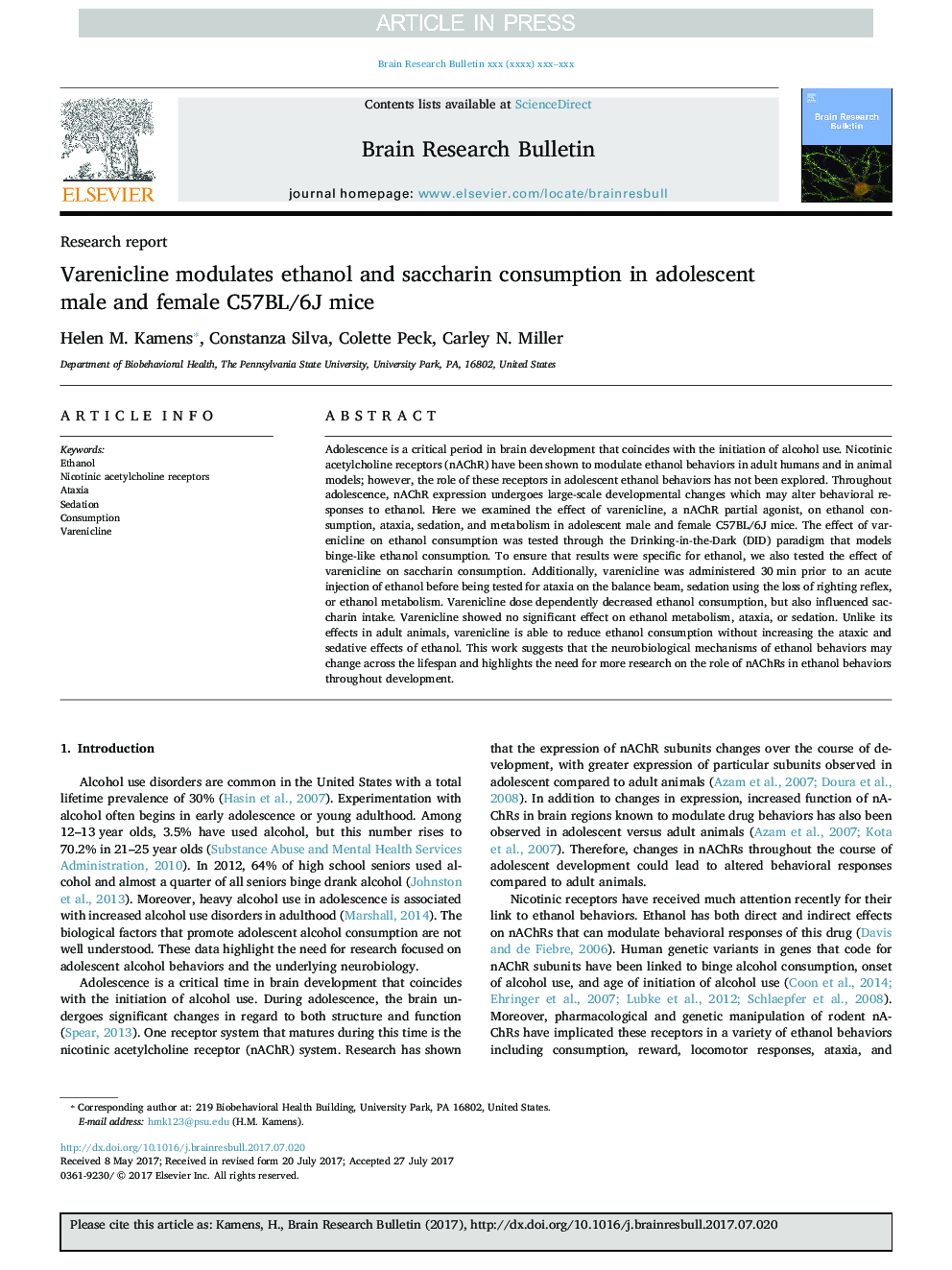| Article ID | Journal | Published Year | Pages | File Type |
|---|---|---|---|---|
| 8838954 | Brain Research Bulletin | 2018 | 6 Pages |
Abstract
Adolescence is a critical period in brain development that coincides with the initiation of alcohol use. Nicotinic acetylcholine receptors (nAChR) have been shown to modulate ethanol behaviors in adult humans and in animal models; however, the role of these receptors in adolescent ethanol behaviors has not been explored. Throughout adolescence, nAChR expression undergoes large-scale developmental changes which may alter behavioral responses to ethanol. Here we examined the effect of varenicline, a nAChR partial agonist, on ethanol consumption, ataxia, sedation, and metabolism in adolescent male and female C57BL/6J mice. The effect of varenicline on ethanol consumption was tested through the Drinking-in-the-Dark (DID) paradigm that models binge-like ethanol consumption. To ensure that results were specific for ethanol, we also tested the effect of varenicline on saccharin consumption. Additionally, varenicline was administered 30Â min prior to an acute injection of ethanol before being tested for ataxia on the balance beam, sedation using the loss of righting reflex, or ethanol metabolism. Varenicline dose dependently decreased ethanol consumption, but also influenced saccharin intake. Varenicline showed no significant effect on ethanol metabolism, ataxia, or sedation. Unlike its effects in adult animals, varenicline is able to reduce ethanol consumption without increasing the ataxic and sedative effects of ethanol. This work suggests that the neurobiological mechanisms of ethanol behaviors may change across the lifespan and highlights the need for more research on the role of nAChRs in ethanol behaviors throughout development.
Related Topics
Life Sciences
Neuroscience
Cellular and Molecular Neuroscience
Authors
Helen M. Kamens, Constanza Silva, Colette Peck, Carley N. Miller,
